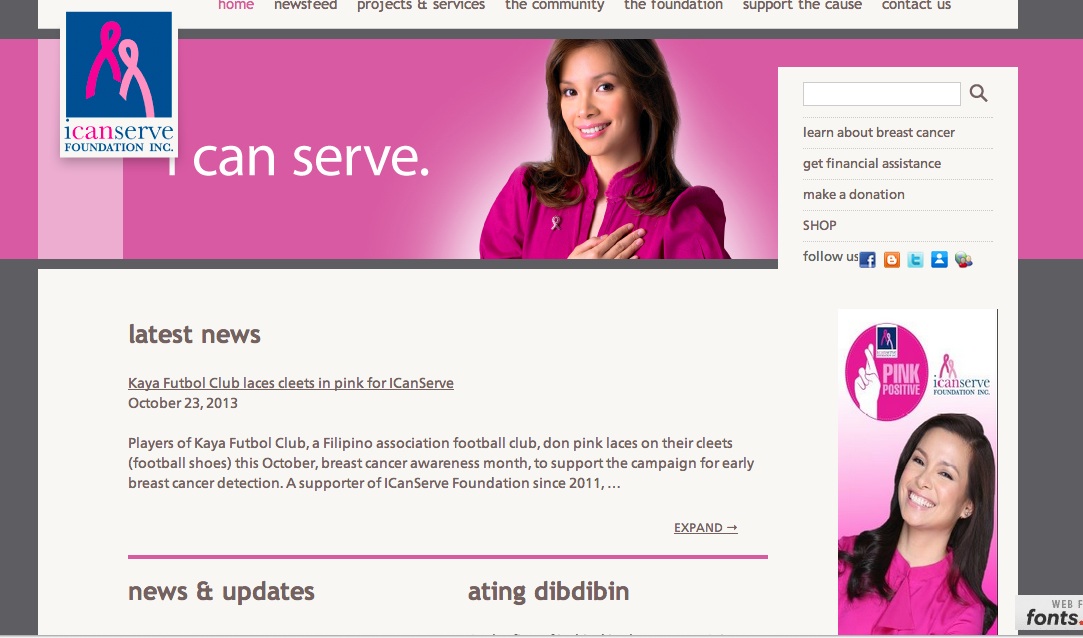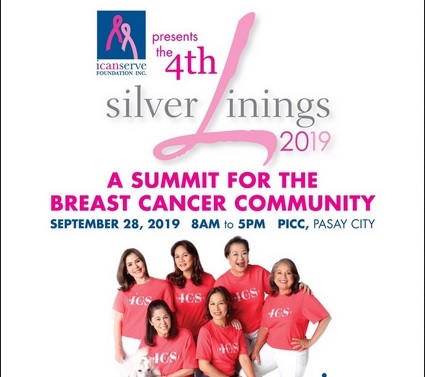By NORMAN SISON

IT was during a vacation in New Zealand when Lydia Paredes noticed a concave indentation on her left breast. After procrastinating for months, she finally saw a doctor.
The diagnosis: invasive ductal carcinoma — a malignant tumor. It was at stage 1, very survivable, but the fact that it was cancer was devastating and terrifying enough.
That was in November 2003. For Lydia’s husband, singer Jim Paredes of Apo Hiking Society fame, it was like yesterday. “The morning she told me, I had to leave for Baguio for a show that evening. Having to leave her and drive, perform, and then drive back was one of the hardest things I ever did,” he later recalls.
Talk about breast cancer and thoughts, of course, focus first on the patient. But, as Paredes learned from his own experience in dealing with his wife’s illness, breast cancer strikes the patient — and the people around him. It’s like the way bombs go off. If you’re in the blast radius, you’ll get hurt.
Yes, husbands also suffer. For them, dealing with breast cancer is a learning experience for which there is no preparation, no on-the-job-training, no orientation. The only way to learn how to swim is to be in the water.
Adding to the challenge is the fact that men by nature do not talk about their problems. Talking is a woman thing, not a man thing. That may explain why there are support groups for breast cancer patients and survivors but there are a handful for the men — if you can find them.
Hence the conundrum: how can husbands of breast cancer patients and survivors cope?
The first step: acceptance. “The idea is to accept the situation fully and give 100 percent emotional, physical, psychological support. In our case, we decided that WE had cancer. Not just Lydia,” says Jim.
For them, breast cancer didn’t just strike the patient. It struck the marriage, it struck the family. Having breast cancer didn’t necessarily mean having the illness.
“It was a struggle that we faced together, trying to give each other unconditional support,” says Paredes. As with any problem, the first step is to recognize that there is a problem. You cannot solve a problem if you are unaware that there is a problem.
Talk about it. “Talk about it often. The more you talk about it, the less threatening it is. In many ways, illness can be a gift if handled well,” Paredes advises. If you get it off your chest, the load becomes lighter.
“Being an artist, I was sensitive to everything. I also helped by talking publicly to groups about what we were going through and my own experience as a husband of someone with breast cancer.”
Talking about it, however, is a challenge for the men, as Paredes learned.
In 2011, Paredes was invited by journalist Kara Alikpala, co-founder of breast cancer patient advocacy ICanServe Foundation (www.icanservefoundation.org), to give a husband’s perspective about breast cancer at Silver Linings, an ICanServe forum in Davao City.
He was hesitant at first. For one, how does one talk about breast cancer if you didn’t face the illness yourself?
“Two, it is painful to talk about it even years later, and I did not want to find myself in a situation where my emotions can get the better of me in public,” Paredes recalls.
“But at the same time, there was a voice within me that said I should go and speak, just from my experience and not from the stance of some learned authority, and trust that my message would get through to some people who may need to hear about what we went through. At the very least, I would not do any harm and I could even do some good.”
As it turned out, husbands who attended the Silver Linings forum came up to Paredes and asked questions about how to cope with the situation. “I know it takes courage to open up since most men are not easily eloquent, talking about their personal suffering, or anything intimate for that matter,” he says. In the end, Paredes found strength by helping others.
Learn from others. As for stricken husbands who are just new to the situation or are still on the ropes, it would help by looking around and see how others are coping. Again, that means coming forward and talking about it.
But there is another perspective to it, Paredes says, basing from his own experience. “From others, I saw that empathy, not pity, was the way to go. You are there to encourage your partner to fight it. You can cry to release pressure, but your duty is to give her that sense of wanting to really survive,” he says.
Yes, breast cancer is not just scary, it is terrifying. But there is no other way to deal with it but to face it. Helping the wife cope means being strong for her. Fortunately for husbands, yes, there are ways to cope.
“There will be fear to deal with,” says Paredes, not mincing words about it. “Feel the fear, face it and do what you must do.”




